
-
 Vaccine misinformation: a lasting side effect from Covid
Vaccine misinformation: a lasting side effect from Covid
-
Indian court finds man guilty in notorious hospital rape case

-
 TikTok's journey from fun app to US security concern
TikTok's journey from fun app to US security concern
-
The video games bedeviling Elon Musk

-
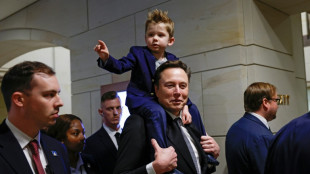 Gamers tear into Musk for 'faking' video game prowess
Gamers tear into Musk for 'faking' video game prowess
-
Global equities rally, pushing London and Frankfurt to new records

-
 US grounds SpaceX's Starship after fiery mid-air explosion
US grounds SpaceX's Starship after fiery mid-air explosion
-
US to tighten trade rules to hit low-cost China shipments

-
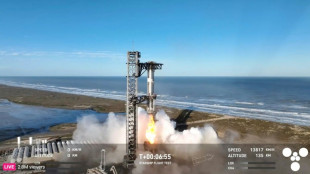 US grounds SpaceX's Starship rocket pending probe
US grounds SpaceX's Starship rocket pending probe
-
IMF raises global growth outlook and flags rising economic divergence

-
 London, Frankfurt hit record highs as global equities rally
London, Frankfurt hit record highs as global equities rally
-
Pompeii reveals 'impressive' bath complex
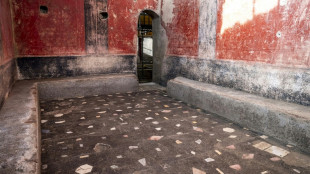
-
 EU deepens probe into X after Musk outbursts
EU deepens probe into X after Musk outbursts
-
London stock market hits record high as global equities rally

-
 2024 saw fastest-ever annual rise in CO2 levels: UK weather service
2024 saw fastest-ever annual rise in CO2 levels: UK weather service
-
'No money': gloom on Beijing streets as economic growth slows

-
 Nintendo shares tumble as Switch 2 teaser disappoints
Nintendo shares tumble as Switch 2 teaser disappoints
-
Apple sidelines AI news summaries due to errors
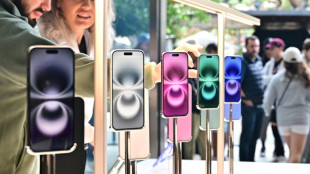
-
 China says population fell for third year in a row in 2024
China says population fell for third year in a row in 2024
-
Asian traders give mixed reaction as China's economic growth slows

-
 Chinese economic growth among slowest in decades
Chinese economic growth among slowest in decades
-
'Damaging' AI porn scandal at US school scars victims

-
 Nintendo shares tumble as Switch 2 preview disappoints
Nintendo shares tumble as Switch 2 preview disappoints
-
SpaceX catches Starship booster again, but upper stage explodes
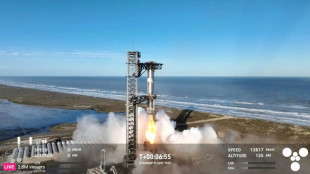
-
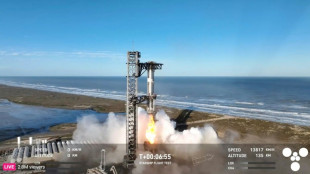 SpaceX catches Starship booster but upper stage explodes
SpaceX catches Starship booster but upper stage explodes
-
Hypertec Cloud Partners With Potentia to Power Sustainable AI Cloud Expansion With Additional 480MW of Balanced Capacity Across North America

-
 Insurance access for US homeowners with higher climate risks declines
Insurance access for US homeowners with higher climate risks declines
-
Wall Street rally loses steam as European luxury shares advance

-
 China set to post sluggish growth as doldrums deepen
China set to post sluggish growth as doldrums deepen
-
US braces for freezing weather fueled by polar vortex

-
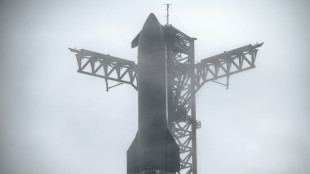 Musk's Starship set for launch after Bezos orbital triumph
Musk's Starship set for launch after Bezos orbital triumph
-
Surf star Slater pays tribute as Quiksilver co-founder Green dies

-
 Teen kills fellow student teacher at Slovak school
Teen kills fellow student teacher at Slovak school
-
LIV Golf sign United States broadcast deal with Fox Sports

-
 Slovak entrepreneur funding rescue of German flying taxi startup
Slovak entrepreneur funding rescue of German flying taxi startup
-
French researchers aim to ease X refugees' path with 'HelloQuitX'

-
 China property giant Vanke's CEO 'taken away' by police: report
China property giant Vanke's CEO 'taken away' by police: report
-
Oil giant BP cuts thousands of jobs to slash costs

-
 EU announces 120 mn euros in Gaza aid after ceasefire
EU announces 120 mn euros in Gaza aid after ceasefire
-
Nepal's top court bars infrastructure in protected areas
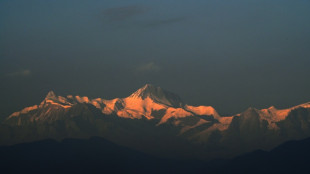
-
 Stock markets jump as inflation worries ease
Stock markets jump as inflation worries ease
-
China to probe US chips over dumping, subsidies

-
 India's outcast toilet cleaners keeping Hindu festival going
India's outcast toilet cleaners keeping Hindu festival going
-
Apple loses top spot in China smartphone sales to local rivals

-
 Sri Lanka signs landmark $3.7 bn deal with Chinese state oil giant
Sri Lanka signs landmark $3.7 bn deal with Chinese state oil giant
-
Blue Origin's New Glenn rocket blasts into orbit for first time
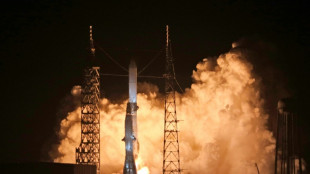
-
 UK economy rebounds but headwinds remain for govt
UK economy rebounds but headwinds remain for govt
-
Stocks follow Wall St higher on welcome US inflation data

-
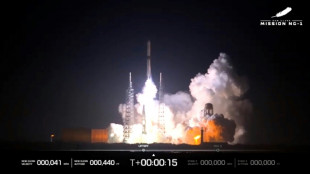 Blue Origin's New Glenn rocket blasts off in first launch, reaches orbit
Blue Origin's New Glenn rocket blasts off in first launch, reaches orbit
-
Chinese give guarded welcome to spending subsidies


Taiwan's Foxconn says building world's largest 'superchip' plant
Taiwanese tech giant Foxconn said on Tuesday it is building the world's largest production plant for US hardware leader Nvidia's GB200 "superchips" that power artificial intelligence servers.
Foxconn, also known by its official name Hon Hai Precision Industry, is the world's biggest contract electronics manufacturer and assembles devices for major tech companies, including Apple.
Ambitious to expand beyond electronics assembly, it has been pushing into areas ranging from electric vehicles to semiconductors and servers.
"We're building the largest GB200 production facility on the planet," senior executive Benjamin Ting said at the company's annual "Hon Hai Tech Day".
"I don't think I can say where now, but it's the largest on the planet," said Ting, Foxconn's senior vice president for the cloud enterprise solutions business.
Chairman Young Liu said while opening the two-day event that Foxconn would be "the first to ship these superchips".
Liu later told reporters the new plant was in Mexico.
Unlike its rivals Intel, Micron and Texas Instruments, Nvidia does not manufacture its own chips but uses subcontractors.
Foxconn also unveiled new electric vehicle prototypes at the tech day -- a seven-seater lifestyle multipurpose utility vehicle and a 21-seater bus.
It plans to do with electric vehicles what it did for gadgets -- become a go-to contract builder.
Foxconn announced last year that it would team up with Nvidia to create "AI factories" -- powerful data-processing centres that would drive the production of next-generation products.
A.Mykhailo--CPN
